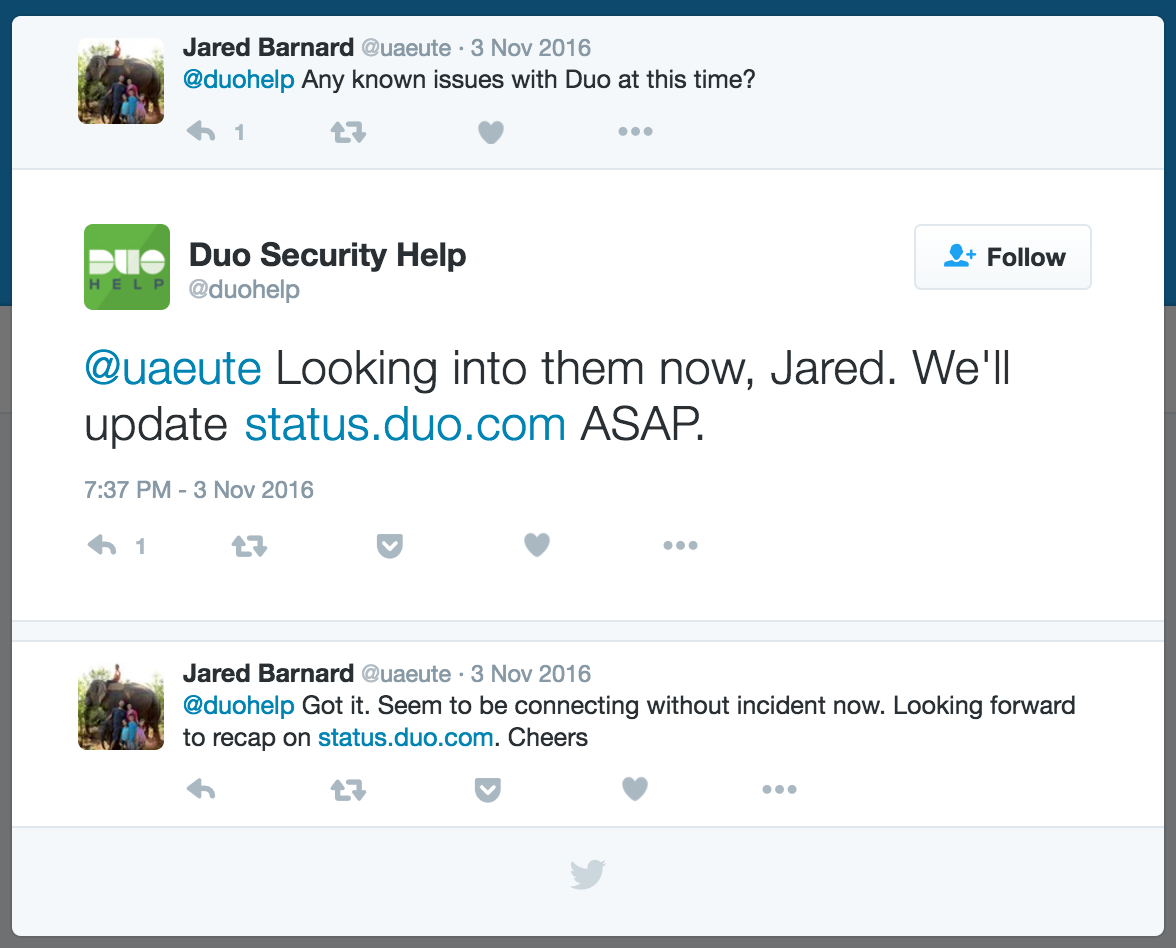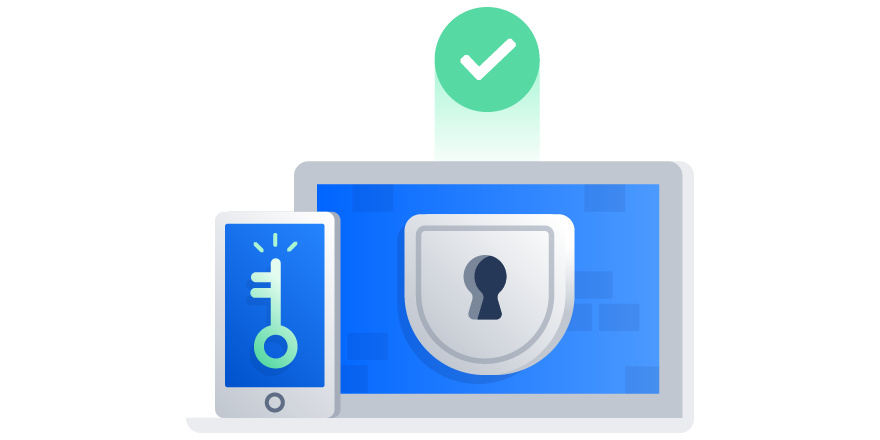How Duo Security uses Statuspage to keep thousands of customers in the loop
At StatusPage, we’ve come across this question a lot.
“I’ve got my users on all these different deployments. How do I let one group know about an outage without alarming all the users on different servers who aren’t affected?”
It’s a good question. We talked with the team at Duo Security and learned about how they’re solving this problem.
Duo Security provides two-factor authentication and other security services for thousands of companies and millions of end users. Teams at Facebook, NASA, Yelp, and many more top companies count on Duo to keep their IT secure.
Launched in 2010, Duo puts a lot of effort into what security means for teams using cloud tools and working remotely. As a security service hosted in the cloud, Duo’s system status is extremely critical to their customers. When incidents occur, their customers need clear, correct, and immediate updates.
“These are the kind of things we want to communicate as quickly and efficiently as possible. If our product goes down it can affect our users’ ability to do work,” said Rory McDowell, Technical Support Engineer at Duo.
Check out the Duo status page here
Taking advantage of component groups
Duo hosts its applications for customers in 46 (and growing) customer deployments. If there’s a problem with one of those 46 deployments, it’s critical to get updates to the corresponding customers. At the same time, Duo wants to be careful to not alert customers in other deployments who aren’t impacted by the incident.
Rory and his team solve for this by using StatusPage’s Component Groups feature. Component Groups allow users to group relevant sub-components together, keeping their page clean and easily digestible for end users.
For Duo, this meant treating creating a Component Group for every deployment. You’ll see on their StatusPage, these groups are labeled DUO1 through DUO46.
Under each Component Group are five components that respond to that deployment:
- Core Authentication Service
- Admin Panel, Push Delivery
- Phone Call Delivery
- SMS Message Delivery
Duo customers can see which group they fall under by logging into their Duo admin panel.
Duo uses the StatusPage API to automatically subscribe new customers to get StatusPage updates for their corresponding Component Group.
The approach has cut down on support tickets during downtime because users are getting the updates from StatusPage. Support agents at Duo also have a pre-written response loaded up in their help-desk tool, pointing users to the status page during downtime.
Twitter integration

Duo also does a great job using the StatusPage Twitter integration to post status updates directly to their @duohelp Twitter account.
And they aren’t just posting updates to the page. You can see they actively monitor the page and use it to answer customer questions and talk to their followers.
Before StatusPage, Duo was simply manually emailing groups of customers during outages.
“This was back when we were a really small startup, ” Rory said. “As we grew, we knew we needed to be more efficient.”
The team briefly considered building something itself, but ultimately decided it would be easier and more efficient to use StatusPage.
“Building this kind of thing internally would take up a lot of resources,” Rory said. “It’s a great solution for a company that’s trying to stay agile and wears multiple hats at once.”

